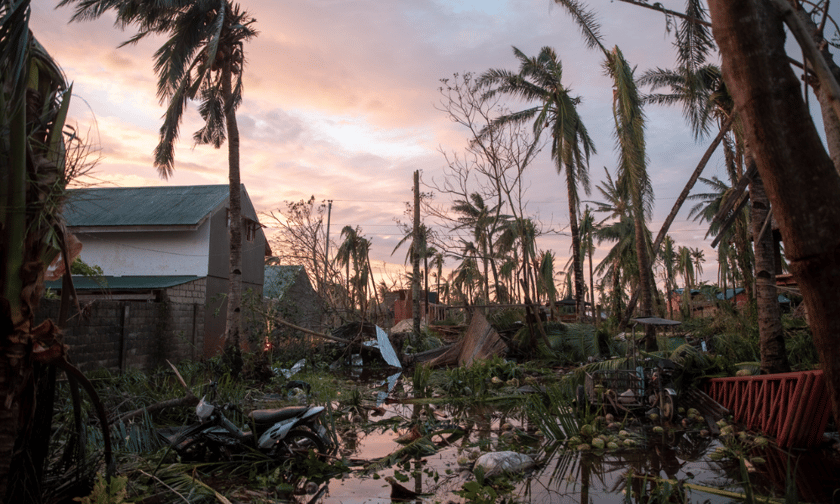

The Philippines is now the most vulnerable nation to catastrophic events, according to a local insurer president. This standing, according to his insights, is one of the effects of the suspension of a Philippine Insurance Commission (IC) circular that was supposed to correct minimum catastrophe rates for insurers in the country.
Fortune General Insurance president Michael Rellosa raised awareness on an ongoing issue relevant to the insurance sector within the country, saying that the shelving of IC Circular 2022-34 has thrown the industry into an unprecedented crisis relevant to the renewal of reinsurance treaties for the year. The circular, dated July 14, 2022, would correct the minimum catastrophe insurance rates from 0.15% to 0.2%, and was supposed to take effect from January 2023.
In his column for The Manila Times, Rellosa said that the further delay in the correction of the rates is detrimental to making the natural catastrophe insurance class more sustainable. He noted that as the world at large faces adverse effects from the continued effects of climate change, the Philippines is now considered the most vulnerable to events such as typhoons, floods, and earthquakes, all disasters that are covered by nat cat insurance.
He noted the possibility of local insurers being unable to get their own backing from reinsurance, which in turn could force them to not offer protection in the form of sustainable natural catastrophe insurance products. Rellosa urged the government to look more closely into the matter, noting that the state is the “ultimate risk takers and insurers post-calamity.”
Rellosa, who has been president of an insurance company for 20 years, also said that the shelving of the circular sends a wrong signal to the international reinsurance market on which the Philippine insurance industry is heavily reliant on. While major reinsures are correcting their own rates, the local sector is unable to do so, with the effect being that the reinsurance market now views the Philippines as an unsustainable risk. Because of this, reinsurers may impose higher reinsurance protection costs, or even pull out their facility from the country altogether.
He also brought up the Philippine Catastrophe Insurance Facility as one of those at risk from the effects of the situation, noting that the efforts by regulators and industry over several years have been jeopardized as a result of the circular’s delay.
Rellosa appealed for the congressional inquiry dedicated to looking into the circular to end soon, and that it results in both branches of government reaching an understanding on the need to have coverage for natural catastrophe events.
“We should take notice of such events happening around the world and even in the Philippines. Statistics do not lie and the trends are there for all to see. Such events are increasing, and we must prepare for them. Anything that prolongs the availability of this type of protection puts all our efforts in helping create a resilient Philippines in jeopardy,” he said.
AIA Philippines president Kelvin Ang also recently revealed the insurer’s suggestion of tax rebates for insurers in order to grow the sector within the country.
What are your thoughts on this story? Please feel free to share your comments below.
